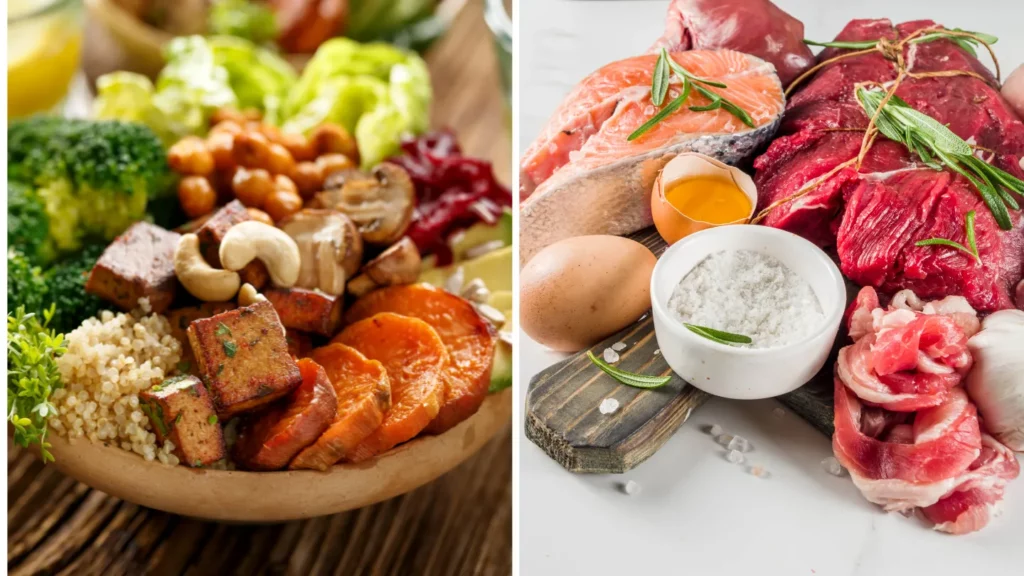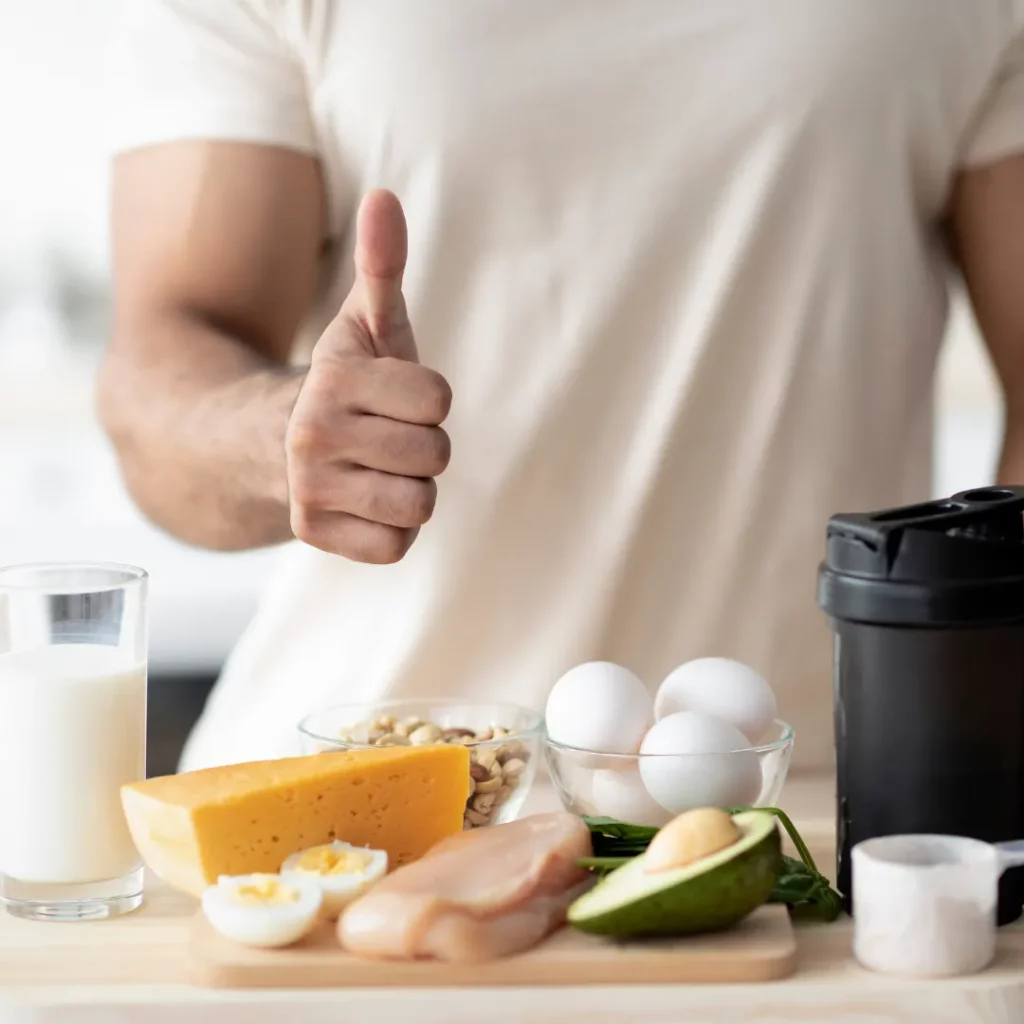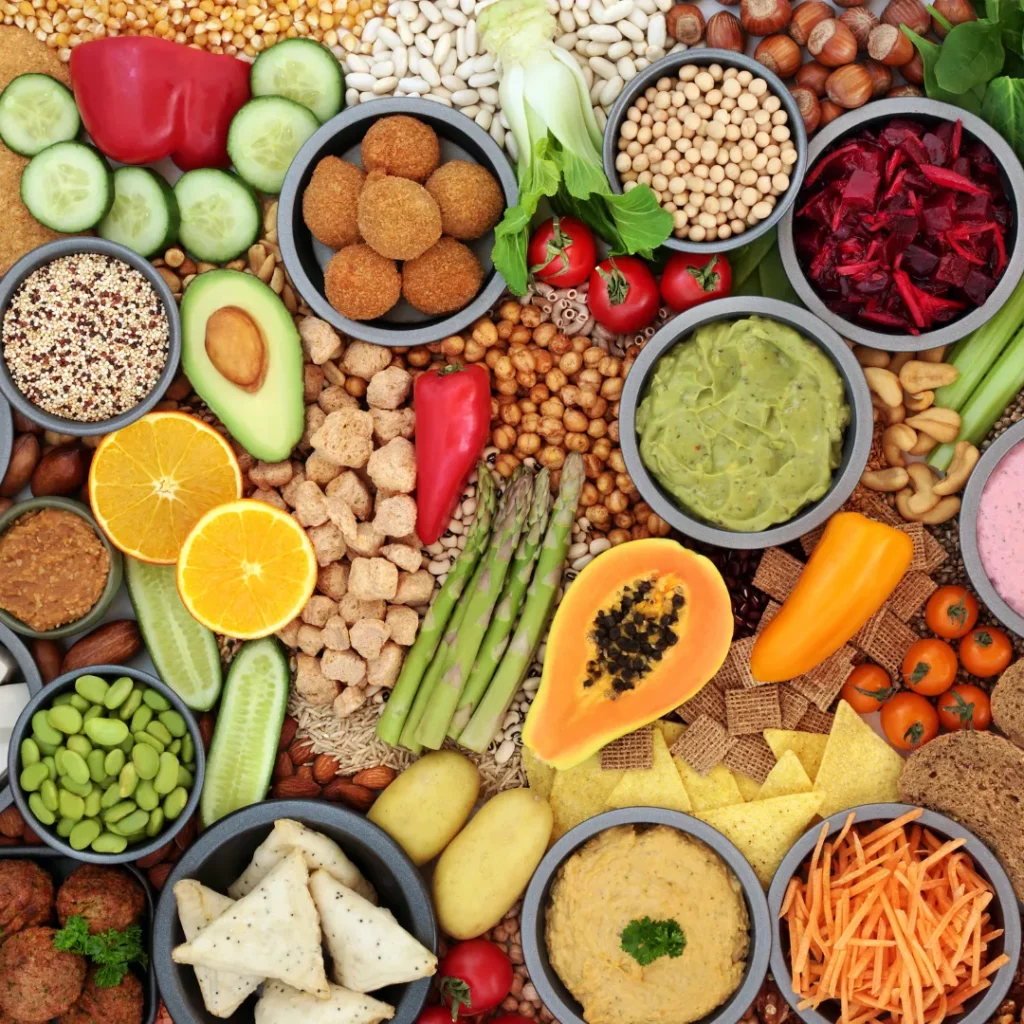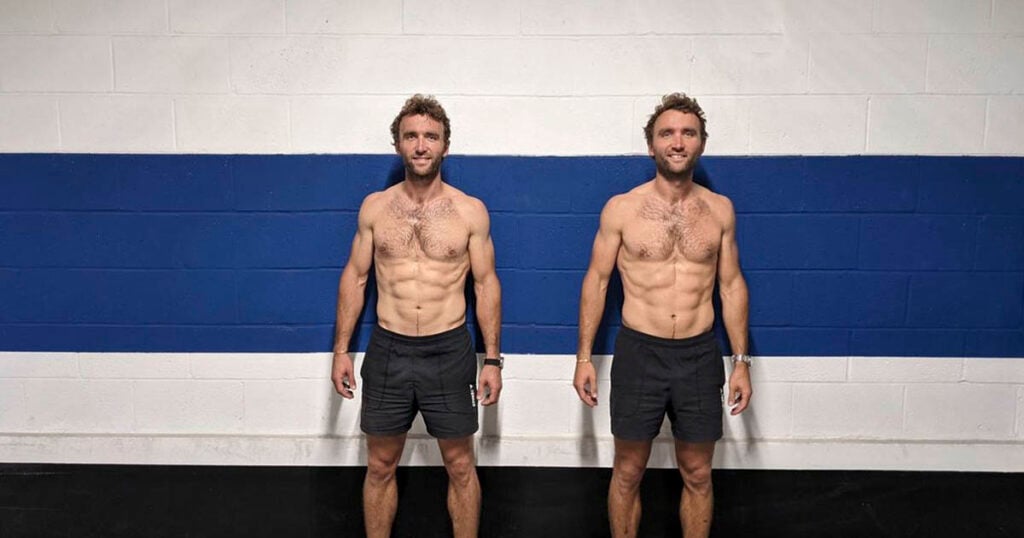Identical twins Hugo and Ross Turner are famous for their daring travels, and this time they chose to explore the effects of two opposing diets—vegan and omnivorous—over a fascinating 12 week food experiment from January to March 2020.
Increasing debate and interest in plant based diets in the world of athletics drove their decision to take on this unique challenge.
The siblings felt that they were genetically similar enough that their experiment would give valuable insight into the effects of different diets on physical performance and overall health.

The twins adhered to the same fitness training routines in a bid to maintain fairness, and to ensure there was no chance of bias.
Ross, a personal trainer, structured a rigorous endurance focused program that he did five to six days a week.
Mindful Chef crafted the meals and provided them to ensure that both twins’ daily calorie intake was almost exactly the same.
Hugo was strictly plant based whereas Ross was varied diet both plant and animal based.
King’s College London scientists monitored their progress carefully, recording key health measures such as weight, cholesterol levels and muscle mass during the study.
Weeks went by, and Hugo began following a vegan diet, and noticed some pretty amazing changes.

His workouts became more energetic than before.
Workout at the gym gave him a boost in energy and mental clarity, he said.
He grew out of snacking on biscuits and chips and up to more nutrient dense options such as fruits and nuts.
This change had a big impact on his overall well being.
Hugo’s main change was losing a lot of weight.
Starting at a weight of about 185 pounds and body fat percentage of 13%, he began the experiment.

At the end of the 12 week period he weighed 181 pounds and his body fat percentage was 12%.
His cholesterol levels improved during the experiment.
But there was a catch to his new diet — Hugo lost all of his libido as a result, and he blamed it on being vegan.
In the meantime, Ross, who follows an omnivorous diet, saw mixed results.
His body fat percentage increased and he gained 10 pounds of muscle, but that was also 15% body fat.
In a first, Ross’s cholesterol levels remained consistent during the experiment — unlike Hugo.
While Ross enjoyed the added muscle mass, the accompanying body fat raised some questions as to the long term effects of an omnivorous diet on his health as a whole.
One of the most surprising results had to do with the twins’ digestive well being.

When Hugo switched to a vegan diet, it also changed the microbiome of his gut — the collection of helpful bacteria in the digestive system.
Atlas Biomed has analyzed a fecal sample and found that Hugo’s gut microbiome has made changes that could make him more resilient to chronic conditions like obesity and type 2 diabetes.
The twins saw a decline in the diversity of microbes in their gut — a hallmark of a diminished ability to treat conditions such as Crohn’s disease.
The findings were interesting, but Hugo and Ross realised that 12 weeks was a relatively short time to have thoroughly investigated a diet.
The researchers indicated a desire to repeat the experiment over a longer time frame, of perhaps six months to a year, in order to obtain more accurate and more complete information.
While it wasn’t easy, it was eye opening and a great realization of the benefits of plant based foods.

They wanted to make a progressive step by incorporating more plant based choices into their meals.
As the experiment came to a close, the Turner twins arrived at a significant agreement: Neither the vegan diet nor the omnivorous diet were declared the ultimate winner.
They thought the best approach was to take the best of both diets and find a middle point between plant based and animal based foods.
Hugo and Ross suggested small changes for anyone looking to embrace a vegan lifestyle: swapping out snacks for vegan ones.
Their experiment was designed as a way to encourage others, especially die hard meat lovers, to broaden their culinary horizons and learn about the benefits of plant based alternatives.
Bold experiments provide the Turner twins’ dietary exploration.
Climbing Mount Elbrus in 2015 and reenacting Sir Ernest Shackleton’s 1914 expedition to Greenland using antique equipment are just two of the feats for which they are known.
The brothers’ latest venture demonstrates how much the human body can adapt to extreme climates or dietary changes.
The twins’ experiment is an interesting view on the ever discussed veganism vs. omnivorous diets.

This suggests that to achieve peak health and performance you need the best of both worlds and a well rounded diet including foods derived from plants and animals.
The results are consistent with other eating habits that are associated with longevity and general health, such as the Mediterranean diet and the plant based diet of the Okinawans in Japan.
Diets like these emphasise the importance of vegetables and fruits as essential parts of a healthy life
The experiences of the Turner twins show that even small changes—like eating more plant based and less processed—can yield major results for anyone who is considering a transition to a vegan life.
While this was only a 12 week experiment, we hope the insights we’ve learned about nutrition, fitness and the body’s ability to adapt will have a lasting impact beyond this dietary trial.





